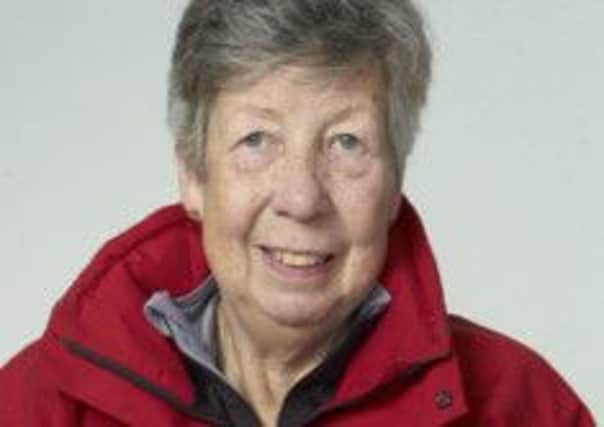Comment: Why organ donation is important


The situation for people needing heart transplants is particularly pressing because better treatment and care mean more people are surviving heart attacks today.
But many survivors don’t have a life, merely an existence, because damage to their heart has caused heart failure, a frightening and debilitating condition that means the heart can’t pump blood effectively. Some heart-failure patients report that it feels like they are drowning because their lungs fill up with fluid and they just can’t get a breath.
Advertisement
Hide AdAdvertisement
Hide AdChildren and young people also await donor hearts. Again, improvements in the treatment of congenital heart conditions mean that more children born with heart problems are growing up, but sadly may still be living with a life-limiting condition that prevents them achieving their potential.
Around 200 heart transplants are carried out in the UK every year thanks to the generosity of donors and their families.
In order to make more donor organs available, we must change our organ donor system in Scotland. BHF Scotland has been lobbying our politicians for legislative change for some time – and I believe that now we have a real chance to make it happen.
Anne McTaggart MSP is proposing a member’s bill that would change our system to one of soft opt-out. We believe this would be a positive change. This would mean that, unless a person expressly states that they do not want to donate their organs in the event of their death, or their family was aware of any objection, the default position would be to donate.
Individuals would still have the choice whether to donate or not and to have their wishes recorded. By normalising organ donation, we believe this would also encourage more people to speak to those closest to them about their wishes.
Anne’s proposed Organ and Tissue Donation (Scotland) Bill is currently out for its 12-week consultation, after which she’ll present the findings to the Scottish Parliament in the hope of having the bill progress through the legislative process.
She’s been canvassing the opinions of shoppers at our Furniture & Electrical stores throughout Scotland. In Glasgow, she met 19-year-old Harry Prentice from South Lanarkshire, who had been gravely ill while waiting for a heart transplant.
Three years ago, Harry visited his GP as he felt unwell and his medical student brother had noticed he looked an unusual colour. That same day Harry and his family were told his condition was serious and he needed a heart transplant.
Advertisement
Hide AdAdvertisement
Hide AdHis mum Yvonne recalled to me: “It all happened in one day. There were a lot of tears and confusion and, quite frankly, the message we were hearing was that it was the end of the road for Harry.”
Harry was placed on the emergency transplant list, but with no organ forthcoming doctors fitted him with a left ventricular assist device, which is an artificial heart pump. It saved his life and Harry was able to carry on for two years until further complications meant he had to go back on the emergency transplant list last year. Six days later, a heart became available.
Yvonne remembers: “I was at a supermarket checkout when Harry called and said ‘Mum I think they have a heart for me’. I was crying and shaking.
“We all dashed to the hospital. We were frightened, but Harry said, ‘Don’t worry, it’ll be fine’.” There were complications and Harry was in danger for two weeks after surgery. Doctors discovered he’d had a severe stroke. Today, he is receiving rehabilitation and is well and hoping to undertake engineering studies.
The Prentice family supports the need for a change to our organ donor system because it would make more organs available and encourage families to talk about it.
Another supporter of our campaign is Sue Swinson, 61, from Bearsden. As a fit and active woman, she was deeply shocked to be diagnosed with heart failure. Two years later she received a new heart and her health has gradually improved.
On the anniversary of her transplant she decided to find out if she could go back to her favourite sport of skiing. She never looked back and she won three skiing medals and one for curling at the Winter Transplant Games in January.
Sue beautifully encapsulates what a transplant means: “Suddenly you have a future again and it’s the most amazing thing.”
Advertisement
Hide AdAdvertisement
Hide AdYou can offer more people a future if you sign the organ donor register and support Anne McTaggart’s bill. Find out more on her website at http://www.annemctaggart.co.uk/ or drop me an e-mail at [email protected].
The other important thing you can do is have a chat with your family about your thoughts and wishes over organ donation. This is a conversation that could save not just one life, but several because by becoming a donor you could save the lives of up to nine people.
You can read more about Sue Swinson’s amazing story in the BHF’s latest edition of its free magazine, Heart Matters. Visit bhf.org.uk/heartmatters to find out how to get your copy.
• Marjory Burns is the director of British Heart Foundation Scotland bhf.org.uk